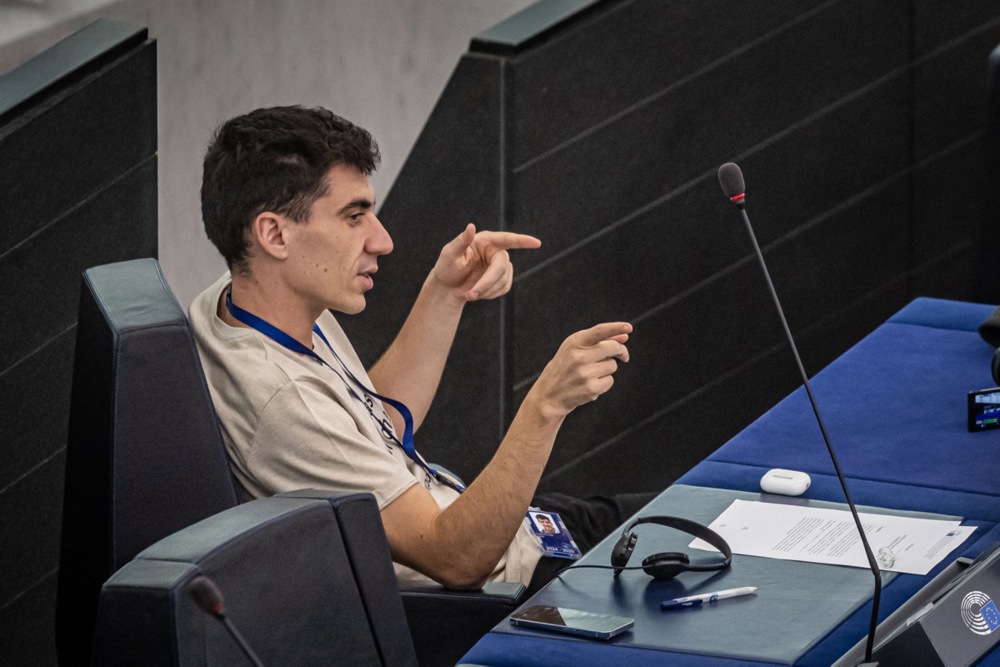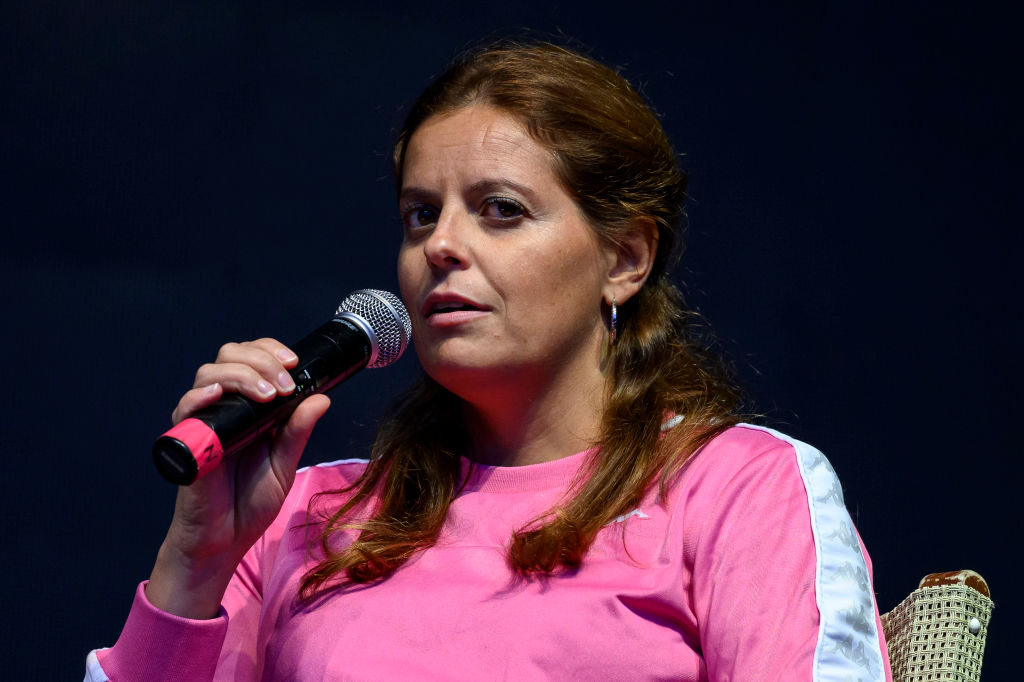The Cypriot social media influencer-turned-MEP Fidias Panayiotou has fought for “free speech” in the European Parliament during a plenary debate on online misinformation and disinformation.
On December 17, Panayiotou criticised the European Commission for what he called its hypocrisy, claiming that it selectively targeted voices to ensure that political power remained accessible only to a privileged elite.
“Throughout representative democracy’s history, the people who were running for office were usually the ones who had access to the traditional media of their time. Now, for the first time in history, everybody has the power to convince people about their ideas and become a politician only by using their phone,” he said.
My Controversial Speech on Social Media pic.twitter.com/JQoDxIghyT
— Fidias (@Fidias0) December 17, 2024
The self-proclaimed “free-speech absolutist” MEP argued that the EC could not censor voices it does not like.
“If everyone uses social media there will be some voices we will not like but freedom of speech is about allowing all the voices to be heard and sometimes here in Europe we censor voices we don’t like just by labelling them ‘disinformation’.”
In his speech, he acknowledged his election as an MEP was mainly due to his social media campaigning and following.
Another MEP, Damian Boeselager, whose party Pan-European party Volt has put social media at the centre of its political strategy, challenged Panayiotou, arguing that the quality of the political messages on social media was important.
The co-founder of Volt argued that often political content was simplistic and could be regarded as misinformation.
Independent Cypriot MEP @Fidias0 has announced he is creating a digital app that will allow EU citizens to participate actively in European politics by voting on topics discussed in the European Parliament. https://t.co/72yXx0evcy
— Brussels Signal (@brusselssignal) December 10, 2024
US tech billionaire and X owner Elon Musk praised Panayiotou’s comments in parliament, saying the MEP was “fighting for speech in Europe”.
Since Musk purchased Twitter in 2022, renaming it X, he has been attempting to make the platform be seen as the “bastion of free speech”.
He reinstated some previously suspended accounts of right-wing US radio hosts Alex Jones and President-elect Donald Trump.
“Our mission at X is to promote and protect the public conversation. We believe X users have the right to express their opinions and ideas without fear of censorship,” X 2024 transparency guidelines read.
The EP debate followed Romania’s Constitutional Court decision on December 6 to annul the first round of the country’s recent presidential elections following allegations of possible foreign interference.
Reports have appeared to show social media was heavily used to promote opposition and pro-Russian independent candidate Călin Georgescu.
The seemingly excessive promotion of Georgescu raised eyebrows in Brussels and in the West.
“Democracies today face many as recently witnessed during the Romanian presidential elections,” said Henna Virkkunen, European Commissioner responsible for tech sovereignty, security and democracy.
The EC opened formal proceedings on December 17 against social media firm TikTok over its alleged failure to limit election interference, notably in the Romanian presidential vote in late November.
“We have sufficient ground to suspect that Tiktok may have been in breach of an obligation under the [Digital Services Act] DSA to properly asses and mitigate risk,” said Virkukken during the plenary debates on the issue.
The Biden administration warned Romania’s election issues could affect its Western ties and investments before the ballot was annulled. https://t.co/SuAs8Cvliz
— Brussels Signal (@brusselssignal) December 17, 2024
The EC has said it believed European democracies were under threat.
“Democracy faces threats from hostile actors both within the EU and also from abroad,” warned Virkkunen on December 17.
Since 2019 the EC has been using various tools to try to moderate and monitor electoral processes’ online commentary and online platforms.
In 2022, it adopted the DSA, which aims to fight illegal content, transparent advertising and disinformation on online platforms.
Since then, European regulators have launched a series of probes into Big Tech.
In 2023, the EC also brought in the “Defence of Democracy” package that aimed to “shed light on covert foreign influence”.
Under the new rules, any group or organisation that worked to promote the interests of a foreign government in the European Union needs to sign up on a special list called a “Transparency Register”.
Such groups or organisations have to provide key details about their activities including how much money was involved, which countries were represented and the main goals of the work undertaken.
US Democrats “openly talk” about using the European Union’s Digital Services Act legislation to censor Americans, journalist and free speech activist Michael @Shellenberger has told Brussels Signal. https://t.co/rdmglPf6fb
— Brussels Signal (@brusselssignal) December 5, 2024





